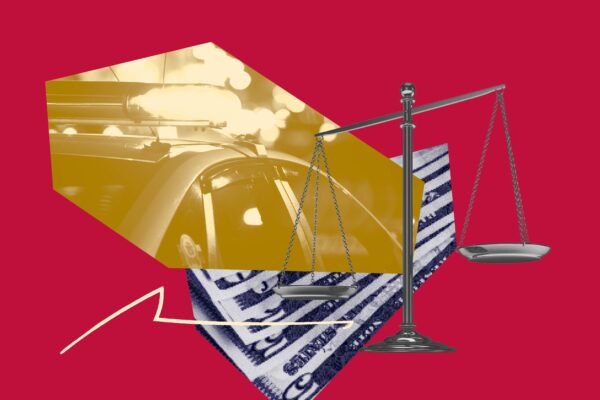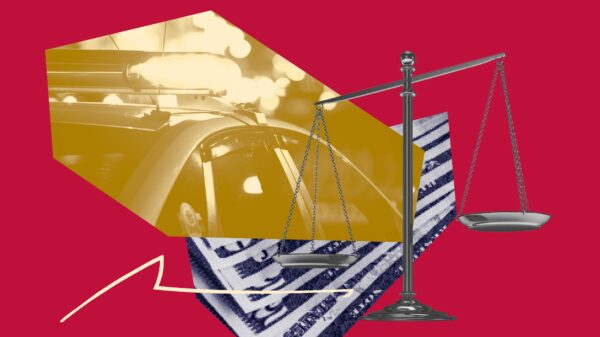What is “Civil Asset Forfeiture?”
When the police take your property with the intent to keep it that is what is known as civil asset forfeiture. Civil asset forfeiture laws allow the police to take your property that they believe was:
- used to commit a crime (like a car you drove),
- money that they think you made committing a crime, or
- something they think was purchased with money from a crime (like a house).
They can take your property even if you are not arrested for or convicted of a crime, or are not the one accused of committing a crime, you only have to own the property.
In Illinois, the laws have been improved in the last five years to make sure that you don’t have to prove your innocence, the government has to prove your guilt, and at a higher level of evidence than before. The new laws also include a faster process for property owners who are not accused of a crime, get rid of the requirement to pay before getting your case heard in court, and require that higher amounts of money and alleged criminal activity are necessary for the police to take your property.
Do I get a lawyer to help me get my property back?
Because this is a civil case, and not a criminal case, you will not be appointed a lawyer, even if you can’t afford one. If you need more information on how to navigate your court case or to find free or low-cost legal help please visit ILcourthelp.gov and the Illinois Legal Aid Online page for civil asset forfeiture cases.
How do I get my property back?
| After the police take your property, they have 60 days to tell the state’s attorney, who will ask the court to decide whether or not they can try to keep your property. If not, your property will be returned to you. If yes, the state’s attorney has 28 days from when the police told them your property was taken to send you notice letting you know that they intend to keep your property and why. You should hear something within 88 days of your property being seized. If you do not, you should call the state’s attorney’s office in the county where your property was seized. | ||
 |
||
| If (1) your property is not a home or land, (2) your property is worth less than $150K or (3) the alleged crime is related to drugs or money laundering (and the money laundering alleged is less than $20K), you must respond to the notice by sending a letter filing a claim with the State’s Attorney’s office that sent you the notice. You must send this letter within 45 days of the notice you receive. The state’s attorney then has 45 days to file a “complaint” to begin the court case. | If (1) your property is a home or land, (2) your property is worth more than $150K, or (3) the alleged crime is not related to drugs or money laundering (unless the money laundering alleged is more than $20K) you should not need to file a claim letter. The state’s attorney will file a “complaint” to begin the court case first. | |
 |
||
| Once the court case has begun, you will have 45 days to file an “appearance” and an “answer” (use these forms for drug and money laundering cases). If you cannot afford court fees you can also file a fee waiver request. Once you file these documents, the court will schedule a first hearing within 60 days.
If there is a criminal case pending at this first hearing, the judge will usually pause the civil asset forfeiture case until the criminal case is resolved. Once the criminal case is resolved, the court will decide if you should get your property back based on if it is more likely than not that (1) the property was used in a crime or the result of a crime and (2) that you knew, should have known, or were involved in the crime. |
||
Other Questions:
Is there a way for me to get my car back during the court case?
If the property that was taken from you was your car, and you need it while the case is being decided in order to get to essential places such as work, childcare, or doctor’s appointments, you can file a “hardship motion” asking the court to temporarily return your car. You should file this motion within 28 days of the first court hearing. The court will then have a hearing to decide if you qualify to get your car back while the case is being decided.
What if I am not the person who is accused of a crime but my property was taken?
If you are the owner of the property that was taken but you were not aware of, responsible for, or involved in the alleged crime, you have the right to an “innocent owner hearing” to try to get your property back more quickly.
To request an innocent owner hearing you will file a motion with a supporting affidavit. You do not have to wait for the criminal case to resolve to file a motion for this hearing but you do have to wait until after the case is started and you have filed your answer.
Your motion will need to include a supporting affidavit explaining that:
- You are the true owner of the property,
Example: Where and when you purchased your car; That you made your money through legal employment - You were not legally responsible for the conduct in question,
Example: You lent your car to your grandchild, partner, friend for a legal purpose, like going to school, not for committing crimes. - You did not solicit or attempt to commit the conduct,
Example: You did not give someone money for the purposes of buying drugs or other illegal activity, you gave them money for a legal reason. - You did not know about the conduct, and
Example: Your car passenger had drugs in their pocket, but you did not know that they had drugs with them before the police discovered them. - You did not hold the property for the benefit of the person arrested.
Example: You don’t own the car or hold onto money for someone in order to avoid them getting in trouble.
At the innocent owner hearing the judge will decide if the facts in your affidavit are likely true and, if the judge agrees, your property will be returned to you. If the judge does not agree, the case will continue through to the final hearing.
**The information listed in this document is not legal advice and does not create an attorney/client relationship.**
Stay Informed
Sign up to be the first to hear about how to take action.
By completing this form, I agree to receive occasional emails per the terms of the ACLU’s privacy statement.
By completing this form, I agree to receive occasional emails per the terms of the ACLU’s privacy statement.


